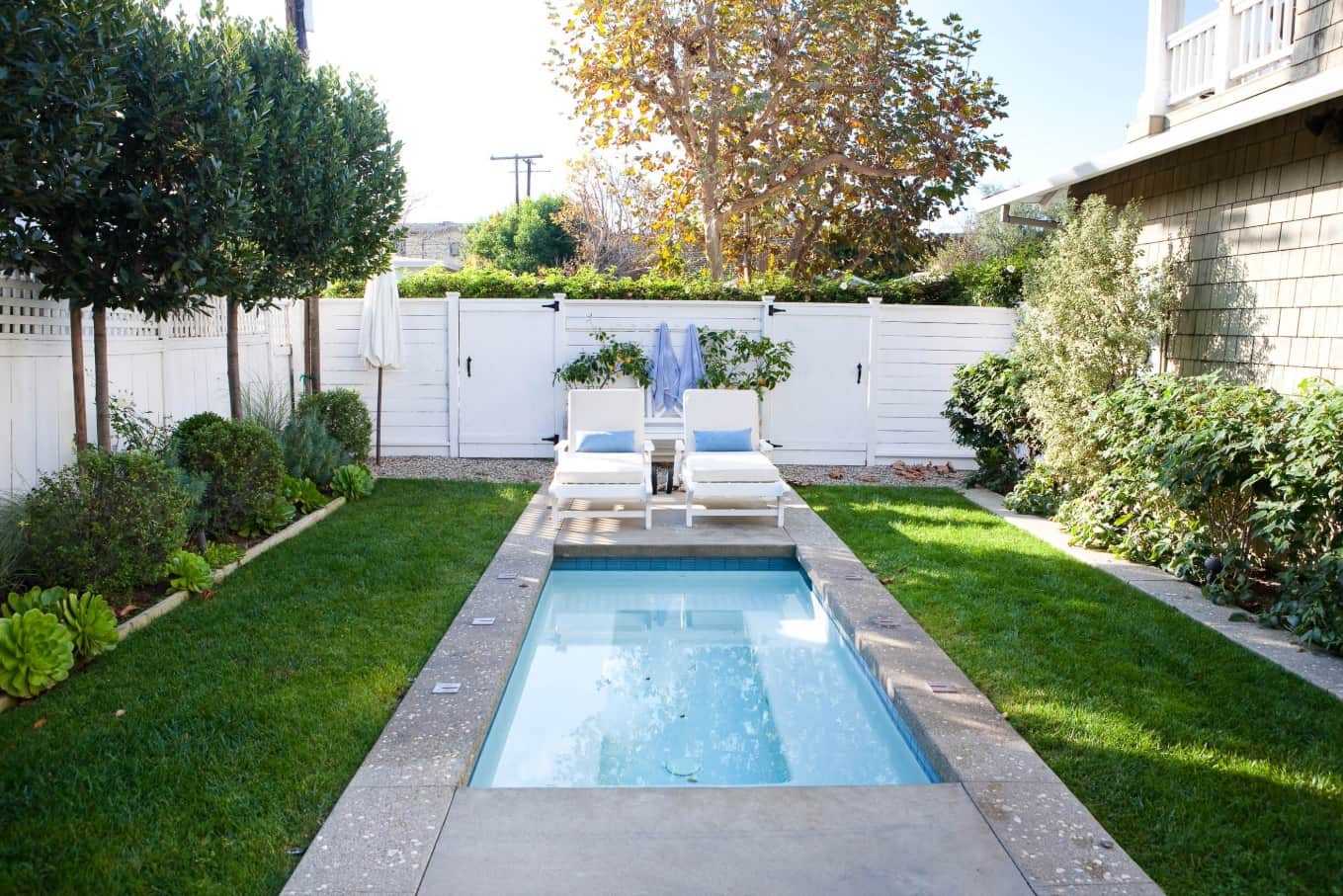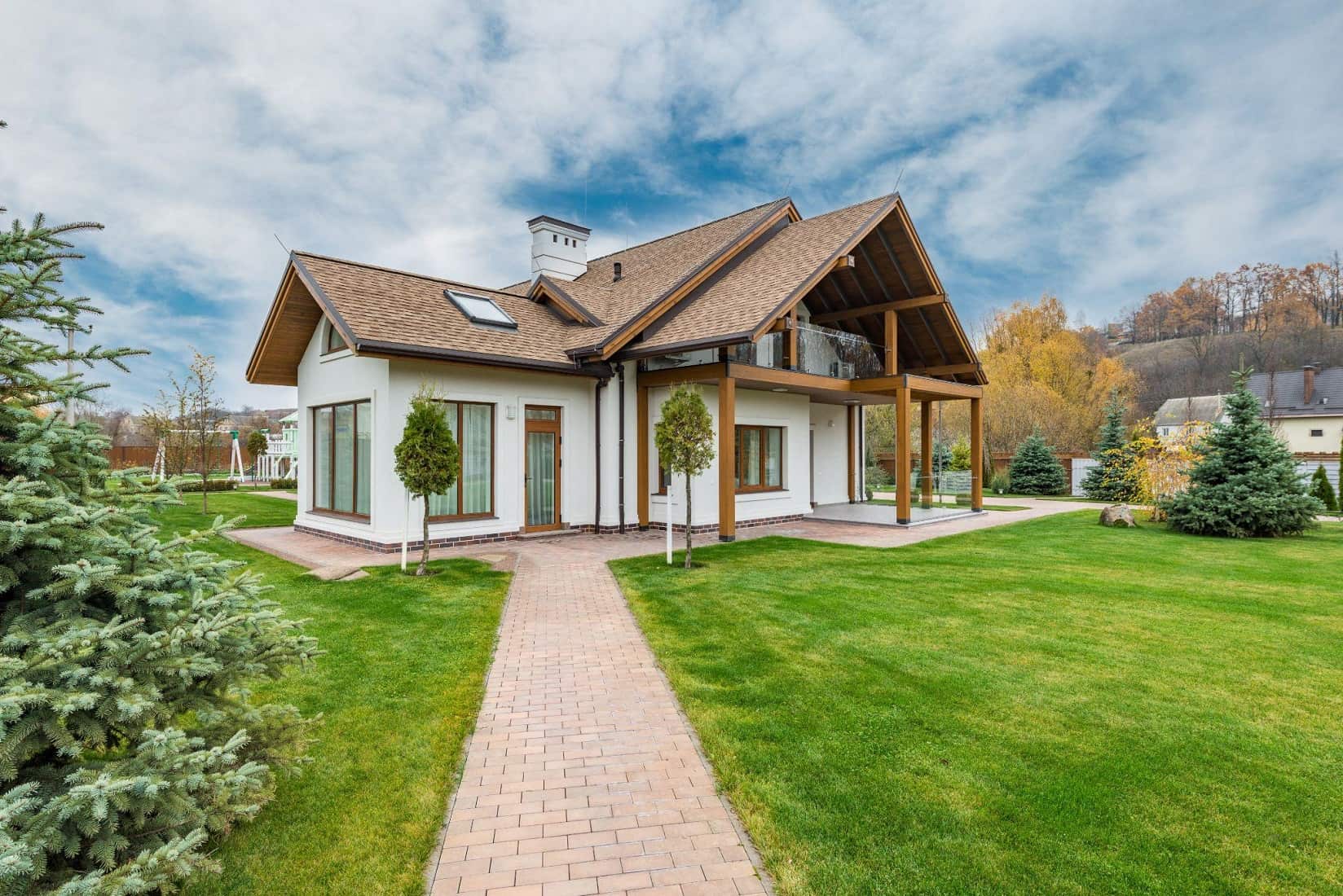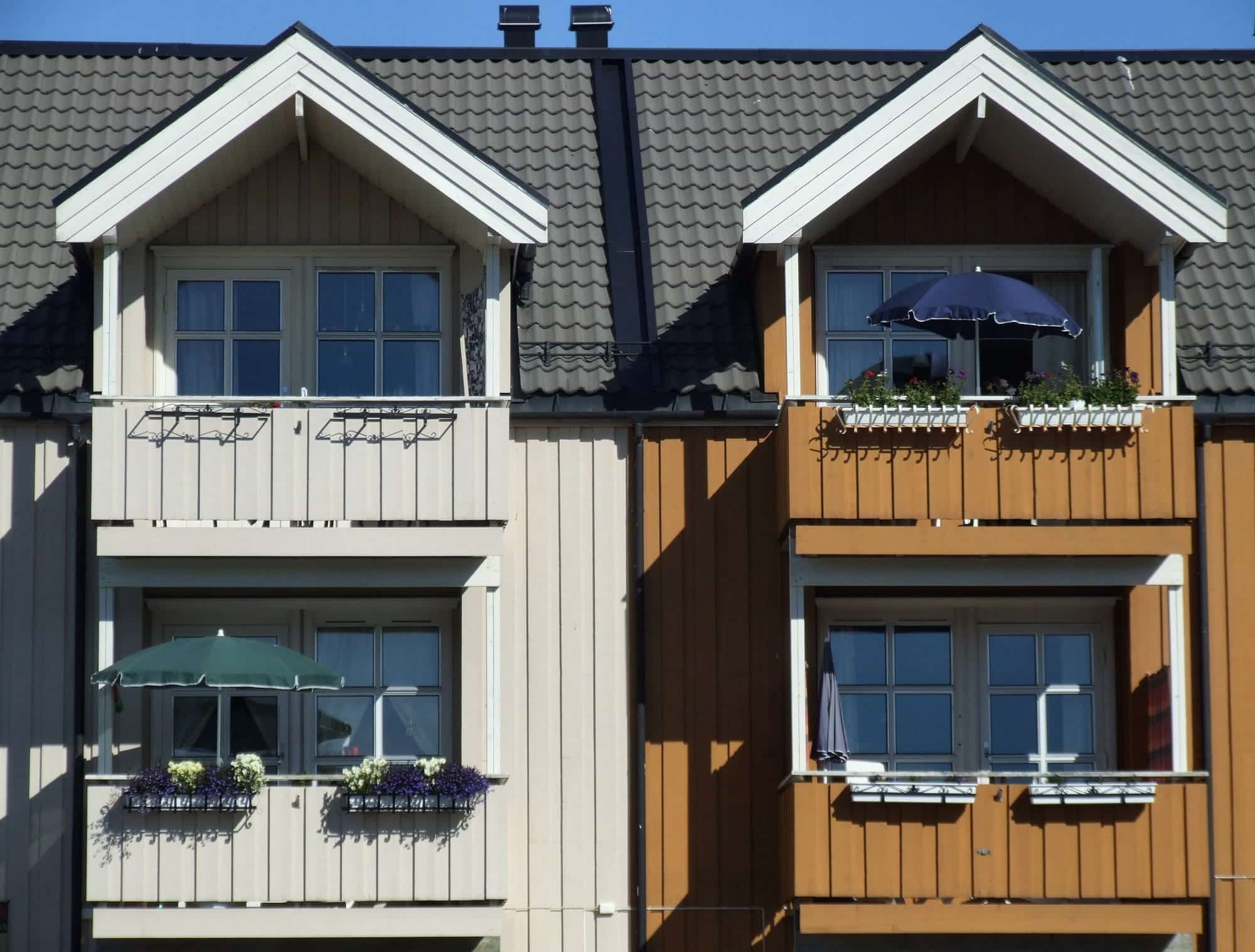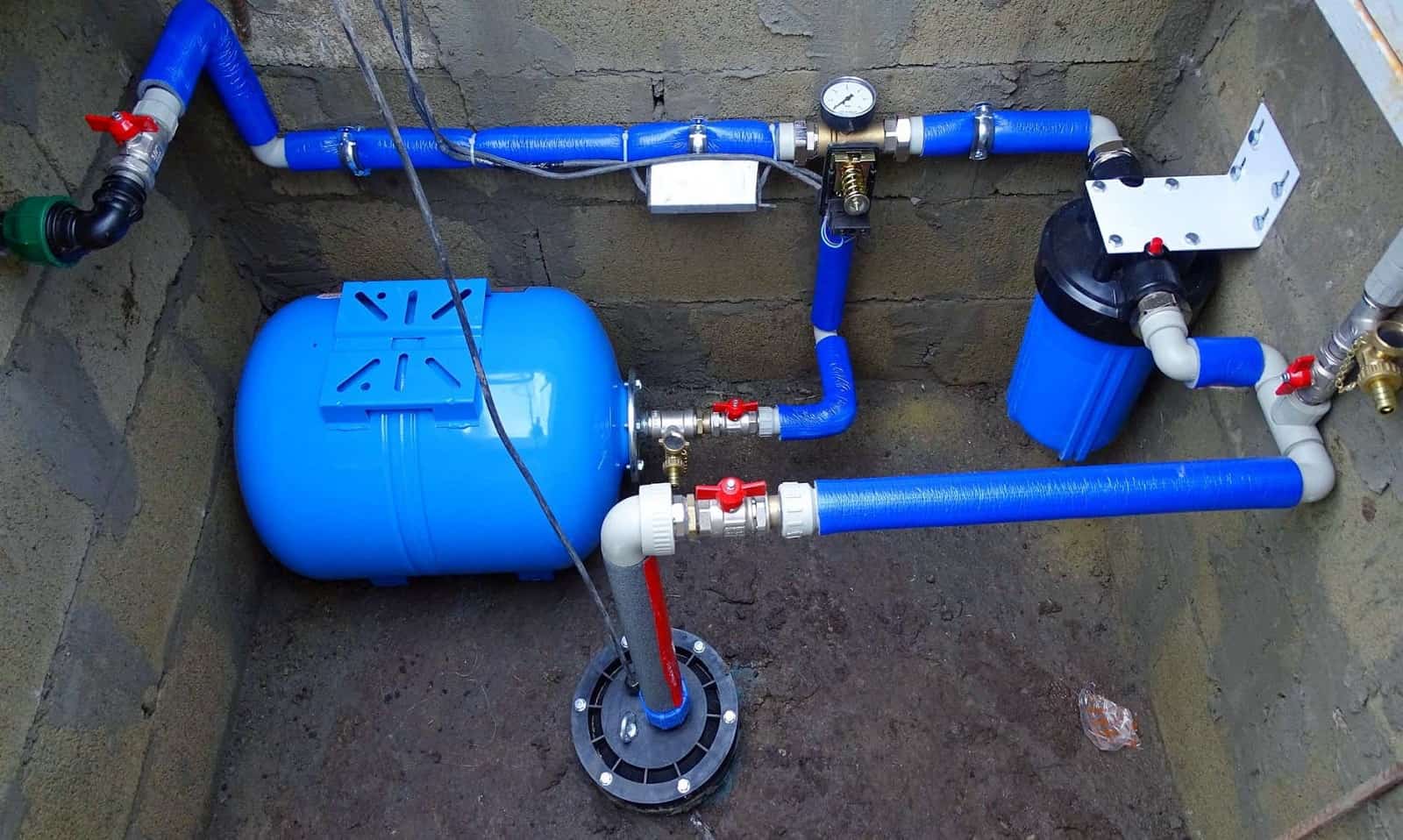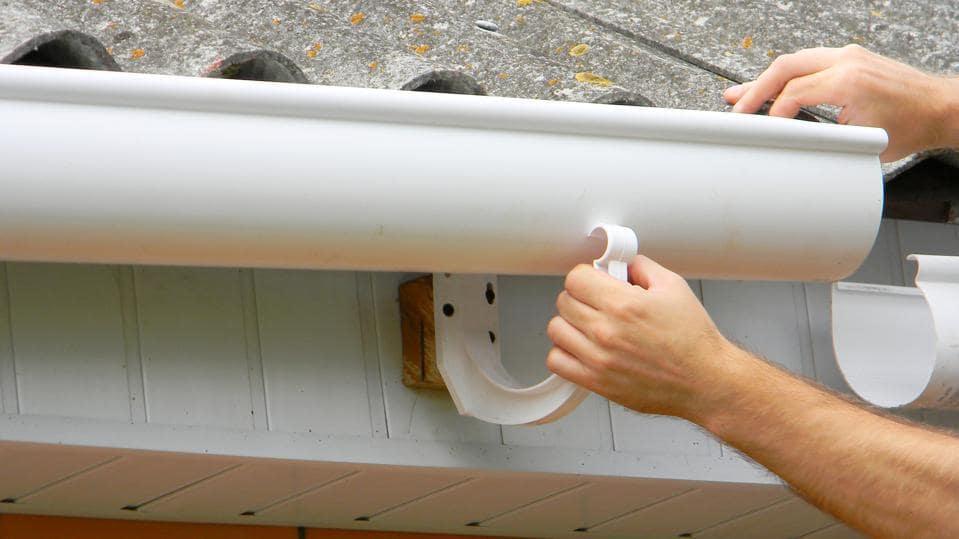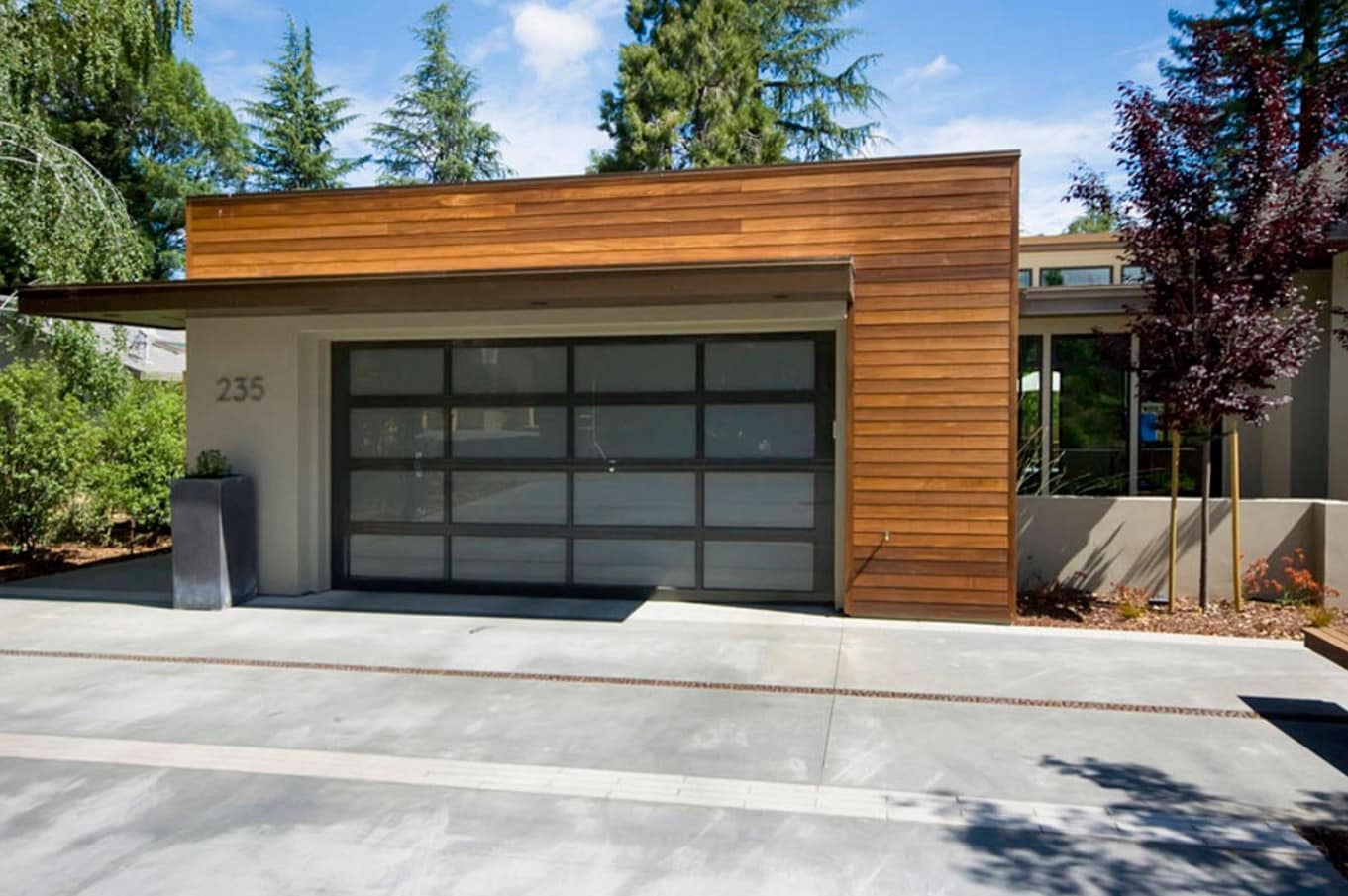Having a pool during the summertime can be an absolute godsend. There is nothing better than to chill out in the cool water after a long day’s work. If you want to keep the pool water clean and fresh, there are a few things you need to do on a regular basis. Let’s face it: no one wants to jump into a dirty swimming pool. Below are 8 steps to help keep your pool clean as a whistle.
Image source: Molly Wood Garden Design
Refrain From Emptying Your Pool
Emptying your pool can be very tempting. Maybe there are too many leaves on the bottom that cannot be fished out or maybe you are thinking of rebuilding your pool entirely from scratch. Unless you absolutely have to empty it out, it is a good idea to leave at least some water in the pool.
The reason you want your pool to be at least somewhat full all the time is because of the high water table risk. Empty pools can easily jump out of its enclosure like a boat if the water in it is not keeping it down with enough weight. Most pool owners do not know this to begin with. If that happens, you are looking at heavy losses.
Keep it Clean
This probably goes without saying, but keeping your pool clean is a no-brainer. You want to perform a ‘chemical open.’ This is essentially making sure your pool is in good condition. Make sure the drainage system is free of clogs and that the filtration system has clean filters.
Mechanical pool cleaners are all the rage now. They are affordable and you barely have to do anything. The little robot does all the work by itself and will make your pool squeaky clean. Check out the Dolphin E10 Robotic Pool Cleaner Review if you want to invest in a good product.
Pool stairs and ladders may be subject to rusting, so make sure to clean them as well. Leaves and other debris are common enemies of swimming pools. A full-sized pool cover can greatly benefit you here; use one when you are not expecting to swim, such as during the fall and winter months.
Keep Your Pool Full
During the winter season, water levels tend to fall. If it is too low, you should top it off. Cleaning the filters is especially important as you do not want your pool to flood with dirty water. For cartridge filters, remove the cartridge itself and spray it down with a hose.
For D.E. filters, you want to disassemble, clean, and reassemble it. In the case of sand filters, you need to set it to the backwash option so it will clean itself afterward. No matter what kind of filter you have, it is important and highly recommended to clean them on a regular basis.
Call in a Professional
Getting your pool water tested professionally might be a good idea. Take a small sample and bring it to your local swimming pool store. They will test the water, and the best part is, they do a comprehensive test. You can know the alkalinity, pH, mineral content, and chlorine levels.
You can adjust the chemical contents of the water-based on that information. If there are no swimming pool stores nearby, you can also buy swimming pool testing kits for a cheap price. They contain little strips that you dip into the water and test it against the provided color chart. After that, simply adjust the chlorine and pH contents as necessary.
A Delicate Balance
Striking the right balance of chemicals in the pool water is vital. The four key components you want to pay attention to are pH, chlorine, alkalinity, and calcium.
pH levels
The ideal pH level is between 7.2 and 7.4. pH levels determine whether the pool water is acidic or basic. The neutral point is 7.0. Anything higher is basic and lower is acidic. Soda ash can help increase pH, while sodium bisulfate can decrease pH. An alternative for sodium bisulfate is muriatic acid.
Alkalinity
The sweet spot for alkalinity is between 80 and 120. Essentially, the alkalinity helps to maintain the pH levels of the water. As with pH, soda ash will increase alkalinity while sodium bisulfate or muriatic acid will decrease alkalinity.
Calcium Level
Calcium is responsible for how ‘hard’ your pool water is. Anything in the range of 150 ppm to 250 ppm (parts per million) is good. If the calcium level in the water is too low (as in it is too soft), the water will try to seep from the ground through the tiles, which can ruin the floor of your swimming pool. Calcium chloride is used to adjust the levels of calcium in the water.
Chlorine Level
Chlorine is vital to keeping your pool water healthy and free of microbes. It can also be harmful to the human body, so striking the right balance is very important. The ideal level is between 1 to 3 ppm. They come in little tablets, and you just toss them in a special basket called in a chlorinator. It is recommended that you purchase a plastic one as the metal ones tend to corrode over time.
Look for Clear Water
It may be tempting to dive straight into the pool on a hot summer’s day, but you should not. It takes on average about seven days for the water to clear completely. The filter needs to be cleaned every single day as well. You can also choose to chlorinate the water in between. Only once the water has completely cleared and you can see the bottom of the pool is when you can jump in.
General Maintenance
Taking regular care of the pool is vital. The sides of the pool are usually overlooked, so it is a good idea to scrub them down once a season when the pool is empty. The pool cover needs to be cleaned as well. If you have a springboard or diving board, make sure the nuts and bolts holding it together are properly fastened and are not rusting. Keep a large net and pool chemicals nearby in case you need to do emergency maintenance.
Pool Etiquette
If you have children, it is a good idea to teach them about pool etiquette. They tend to urinate in the pool, so always advise them against it. You can easily determine whether they have urinated because the water will change color as it reacts with the chlorine.
Eating and drinking in the pool should be avoided at all costs. If food particles fall in the pool, it will severely impact the cleanliness of the water. Pool toys can sink down into the bottom and rust, so keep track of them.
A pool can be a great source of fun with family and friends. No one wants to get into a dirty pool. It can be a huge turn-off and downright embarrassing, so keep it clean and have fun.

